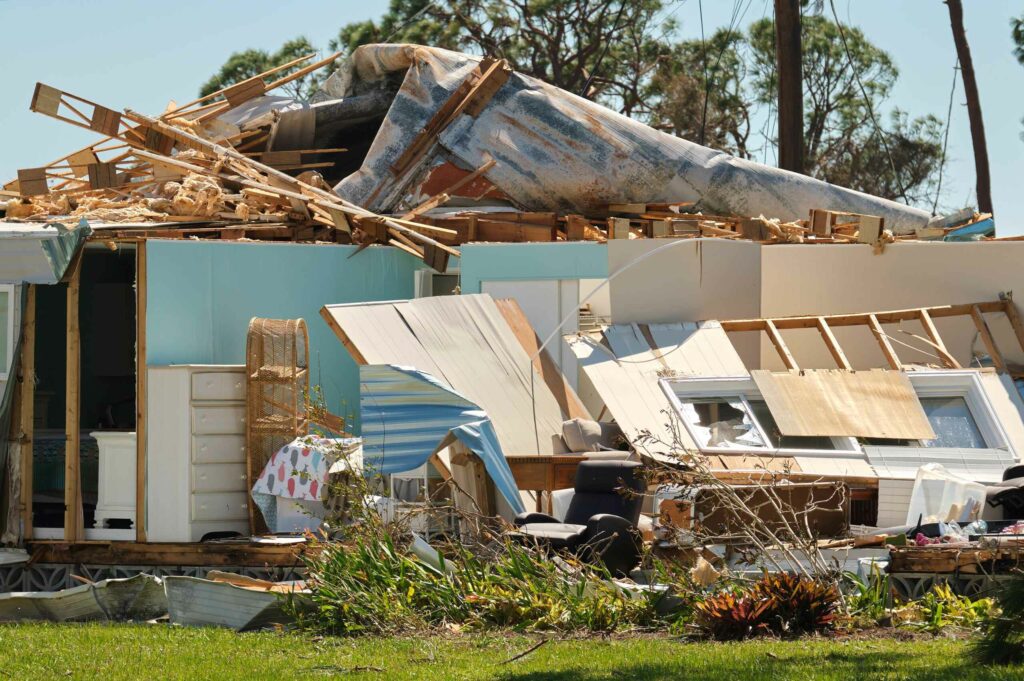Post Hurricane Helene Responsibilities as a Policyholder
As you brace yourself for the impending hurricane, it’s perfectly normal to feel a mix of anxiety and anticipation. While we can’t control Mother Nature (trust me, we’ve tried), we can control how we respond when the storm clouds roll in. Knowing your responsibilities as a policyholder can protect your property and make the recovery process much smoother.
1. Act Quickly to Mitigate Damage
Once the winds start howling, your first job is to mitigate further damage—a fancy way of saying, “Stop the damage from getting worse!” Here’s how to do that without losing your cool:
- Secure the Area: If it’s safe, cover broken windows and doors with plywood or tarps to protect any entrance to your property. If you can, use sandbags to block floodwaters! Anything you can do to prevent further damage from occurring may help your claim.
- Turn Off Utilities: Consider putting your property on “Do Not Disturb” mode. If you suspect flooding, shut off the electricity, gas, and water. Nobody wants a surprise electrical fire or a gas leak to add to the drama.
- Document Everything: Channel your inner photographer! Snap photos or record videos of the damage as soon as you can after a hurricane. This evidence will be your best ally when filing an insurance claim.
2. Notify Your Insurance Carrier Immediately
Once you’ve taken steps to secure your property, it’s time to let your insurance carrier in on the action. Here’s how to make the call count:
- Gather Your Information: Before dialing, grab your policy number, damage details, and any documentation you’ve collected. You want to be the most organized policyholder they’ve ever spoken to!
- File a Claim Promptly: Depending on your insurance carrier and the state you live in, you’ll have a set deadline to follow to file a claim. It’s important to ensure you follow said deadlines to ensure you set your claim up for success.
- Keep a Record of Communication: Document every interaction with your insurance carrier. Dates, times, names—be the Sherlock Holmes of your claims process!
3. Take Charge of the Recovery Process with Premier Claims
After notifying your insurance carrier, it’s time to take charge of the recovery process—and you don’t have to do it alone! Here’s how Premier Claims can step in and assist you:
- Get Experienced Guidance: Our team is ready to help you understand your policy, advocate for coverage, and guide you through the entire claims process. Think of us as your personal insurance sidekick, keeping you from being left in the dark.
- Work with Professionals: If damage has occurred, we can connect you with licensed professionals who can assess the situation and provide repair estimates. We’re all about assembling your superhero team for recovery so you can focus on what matters most—keeping your family safe.
- Stay Informed and Empowered: We’ll keep you updated throughout the claims process and offer tips on how to communicate effectively with your insurance carrier. Our mission is to make sure you feel empowered and informed every step of the way.
4. Lean on Your Community for Support
Finally, don’t forget about the power of community. After the hurricane is the perfect time to channel your inner neighborly spirit.
- Reach Out for Help: Whether it’s a quick chat with a neighbor or joining local support groups, leaning on each other can lighten the load. You might even discover your neighbors have hidden talents, like providing homemade cookies or offering a helping hand!
- Share Resources: Knowledge is power! Share tips and resources about recovery, insurance claims, and local services. You’re all in this together, after all.
Weathering the Storm Together
Facing the aftermath of a hurricane can feel daunting, but understanding your responsibilities as a policyholder can empower you during this challenging time. Taking proactive steps to mitigate damage, notifying your insurance carrier promptly, and leaning on your community for support can turn a stressful situation into a more manageable one.
If you need help navigating the claims process, remember Premier Claims is here to guide you every step of the way. Connect with our team today, and together, we’ll turn this stormy season into a story of resilience and recovery.



